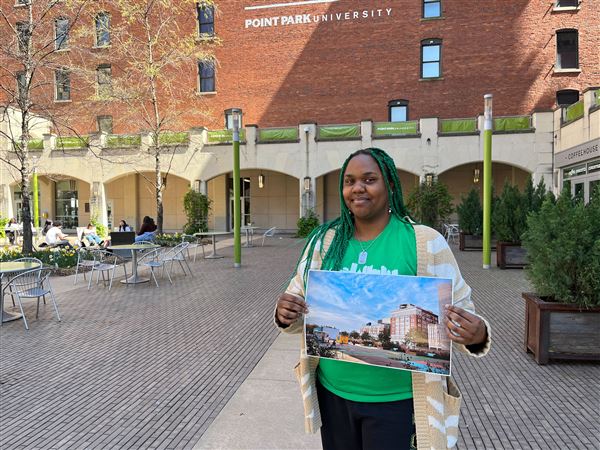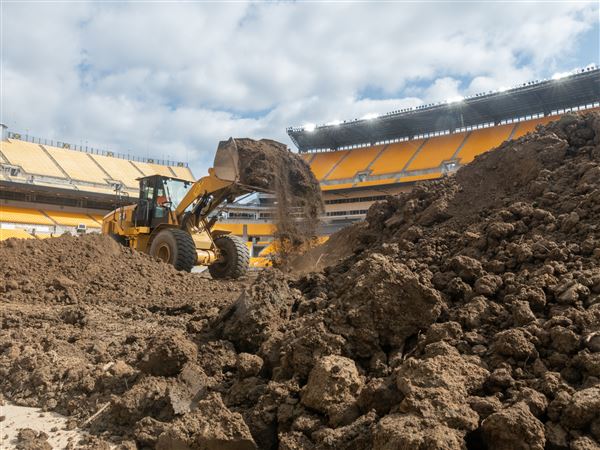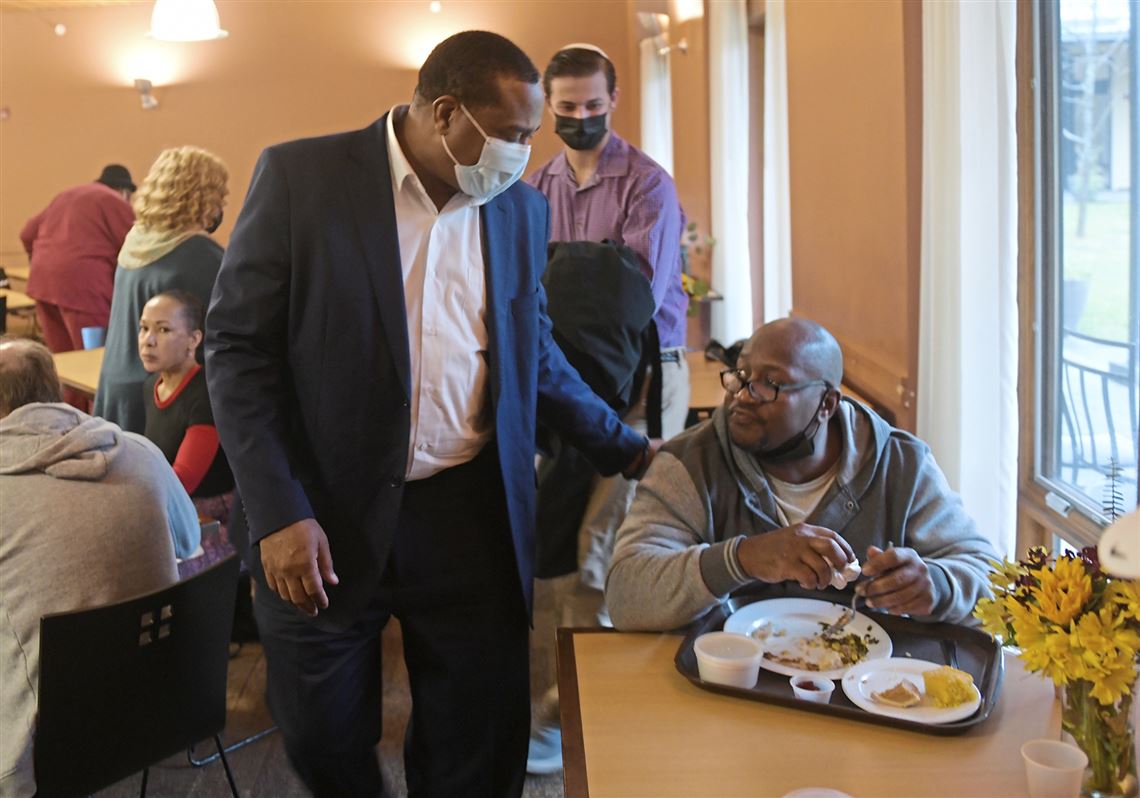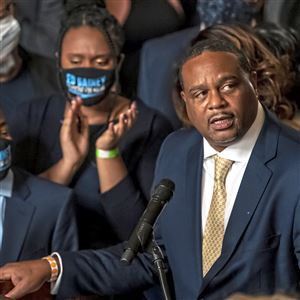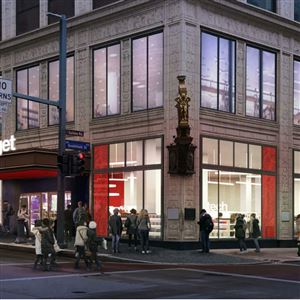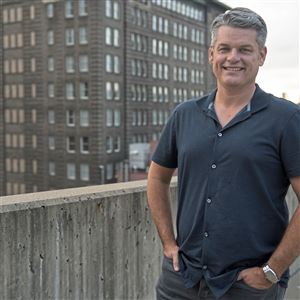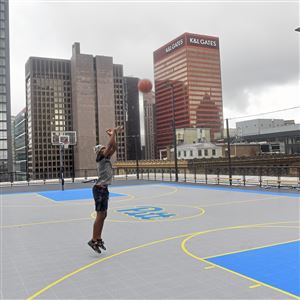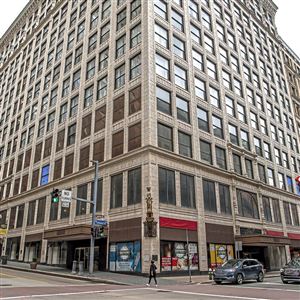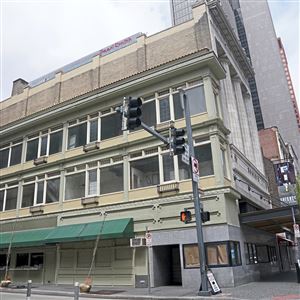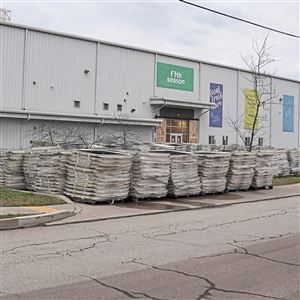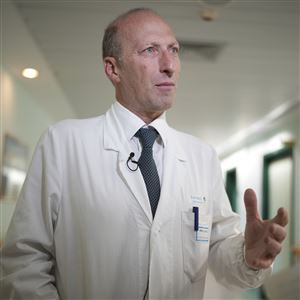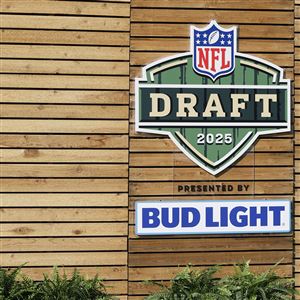For Pittsburgh Mayor-elect Ed Gainey, building a better Downtown starts with cleaning up Downtown.
During a meeting with Downtown stakeholders Monday, Mr. Gainey said one of his top priorities for the Golden Triangle is to tidy it up.
“Downtown is not as clean or as healthy as it should be,” he said.
That point was again driven home to him earlier in the day, he noted, when he and state Rep. Jake Wheatley were walking down Smithfield Street and saw “feces right on the street.”
“You’re talking about people that got to walk through this town that you’re asking them to do business with. When they walk through this town, that’s not something they should see,” he said.
The smell alone in the Fifth and Forbes corridor, the heart of Downtown, he continued, “will make you want to leave.”
“So if the smell makes those that live here and invest here and play here want to leave, how much more do we need to clean it up if we’re going to be attractive to others?” he said. “Downtown needs to be cleaned up. It should never look like this.”
But Mr. Gainey, who takes office in January, emphasized that he can’t do it alone. He called on Downtown stakeholders, including retailers and businesspeople, to help him address the issue.
“The city can’t clean up Downtown by itself,” he said. “We don’t have enough resources to do it. We’re going to need you. Our Downtown, without question, should be the safest place in America. And we can make it that way if we work together.”
Another priority is increasing the Downtown housing stock, particularly affordable units. There may be an opportunity to do so, Mr. Gainey said, given vacancies in many office buildings because of the fallout from the COVID-19 pandemic.
“Where people work is where they play and we don’t have enough units Downtown for people to play with. If we’re going to make Downtown successful, it’s because we improve our housing stock to the point where we have enough units where now Downtown is a neighborhood that is centrally located where people not only live but they play Downtown as well,” he said.
Mr. Gainey also has called for a public health plan to address issues like homelessness throughout the city, including Downtown, and violence.
“If we don’t have a public health plan to eradicate this violence, then we will just continue to spend money as a Band-Aid hoping that it goes away,” he said.
Such a plan, he added, will help build Downtown and the region.
“The city can’t do it alone. I’m asking for your partnership,” he told those attending the gathering, sponsored by the Pittsburgh Downtown Community Development Corporation.
During a question and answer period, Mr. Gainey was queried several times by business people who had issues with the city’s department of permits, licenses, and inspections and related bureaucracies.
Developers in the past have expressed frustration with how long it takes to get permits approved and dealing with red tape.
“PLI needs some work. Everyone I’ve talked to described just what you said,” Mr. Gainey told one developer. “We understand that PLI is something that we have to look at.”
He believes there needs to be improvements in the system, not just more manpower. In that regard, he saw a need for more centralization and boosting morale, including better pay and support.
“We understand that we’ve got to work with you to create a system that is functional, that is timely, and that gets the outcome that you need in order to deliver business,” he said. “That creates a great city.”
With so many different agencies involved now, from PLI to the department of mobility and infrastructure to planning and zoning, “it’s too much,” Mr. Gainey acknowledged. “You get a headache.”
The session turned tense at one point when one person interrupted the questioning about Downtown and complained that Mr. Gainey’s answers to issues of systematic racism and police brutality were, “I don’t know.”
Mr. Gainey responded by saying that wasn’t true, noting he wanted to “demilitarize” the police force “because I don’t know who we’re at war with,” stop overpolicing of neighborhoods and implement a public health plan.
Some Downtown stakeholders who attended the meeting liked Mr. Gainey’s message about ways to improve the city’s center.
“I am extremely hopeful, very hopeful. He’s impressed me with his genuineness about wanting to partner with the city and our organizations to make our city great,” said Kevin McMahon, the CEO of the Pittsburgh Cultural Trust, who has raised issues in the past about the “declining level of public safety” in Downtown.
“I think he’s on the right track. I think he has a good vision, and I think he has the will to get things done,” added John Valentine, executive director of the Pittsburgh Downtown CDC.
Mark Belko: mbelko@post-gazette.com or 412-263-1262.
First Published: November 30, 2021, 11:59 a.m.
Updated: November 30, 2021, 12:02 p.m.

